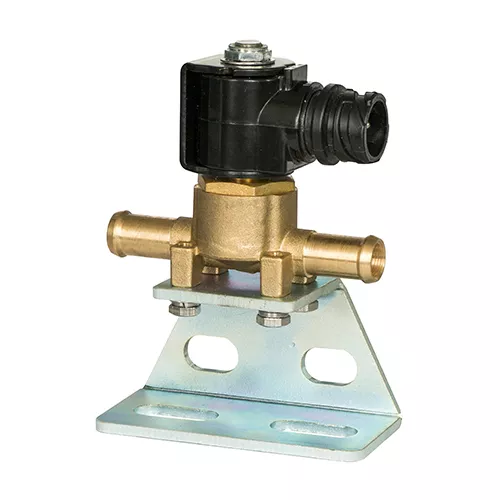What are Applications of Solenoid Valves
Solenoid valves often hailed as the unsung heroes of fluid control systems, play a pivotal role in an array of industrial applications. In this comprehensive exploration, we delve into the myriad uses of solenoid valves, shedding light on their significance in various industries.
What Are Solenoid Valves?
Solenoid valves are electromechanical devices that control the flow of liquids or gases by employing an electric current to generate a magnetic field. This magnetic field activates a mechanism within the valve, allowing for the precise regulation of fluid flow.

Types of Solenoid Valves
Direct-Acting Solenoid Valves
These valves operate with a simple design where the solenoid directly controls the opening and closing of the valve, making them suitable for applications with lower flow rates.
Pilot-Operated Solenoid Valves
In contrast, pilot-operated solenoid valves utilize a diaphragm and a pilot valve to control the flow of fluids. This design enables them to handle larger flow rates, making them ideal for more demanding industrial settings.
Applications of Solenoid Valves
1. Automotive Industry
In the automotive sector, solenoid valves are integral components in automatic transmission systems, emission control systems, and fuel injection systems. Their precise control over fluid flow ensures optimal performance and fuel efficiency.
2. Medical Equipment
Solenoid valves find extensive applications in medical equipment, facilitating the controlled release of gases and fluids in devices like anesthesia machines and diagnostic equipment. The reliability of solenoid valves is crucial in maintaining the accuracy of medical procedures.
3. Water Treatment Systems
Municipal water treatment plants rely on solenoid valves for regulating the flow of chemicals, ensuring the proper treatment of water for public consumption. The quick response and accuracy of these valves contribute to the efficiency of water treatment processes.
4. HVAC Systems
Heating, ventilation, and air conditioning (HVAC) systems leverage solenoid valves to regulate the flow of refrigerants and maintain optimal temperature control. This application underscores the valves' role in enhancing energy efficiency and overall system performance.
5. Industrial Automation
In the realm of industrial automation, solenoid valves act as key components in controlling the flow of fluids in manufacturing processes. Their responsiveness and precision contribute to the seamless operation of automated systems.
Significance of Solenoid Valves in Industrial Processes
Solenoid valves offer a range of advantages that make them indispensable in industrial settings:
1. Precision Control
The ability of solenoid valves to provide precise control over fluid flow ensures the accuracy and efficiency of various processes, contributing to enhanced overall performance.
2. Quick Response Time
Solenoid valves boast rapid response times, making them ideal for applications where quick and precise fluid regulation is paramount. This characteristic is particularly crucial in industries that demand swift operational adjustments.
3. Reliability and Durability
Industrial processes necessitate reliable components, and solenoid valves stand out for their durability and resilience. Their robust construction ensures longevity, minimizing downtime and maintenance costs.
Conclusion
In conclusion, solenoid valves emerge as indispensable components across diverse industries, offering unparalleled precision, quick response times, and reliability. Their applications in automotive, medical, water treatment, HVAC, and industrial automation underscore their versatility and significance in modern engineering.
评论
发表评论